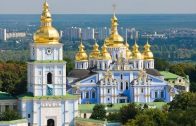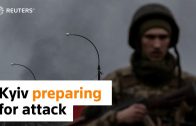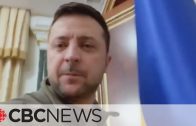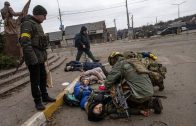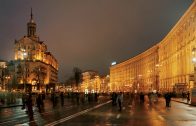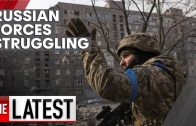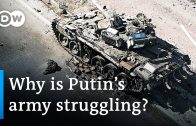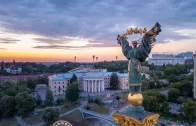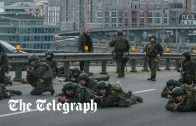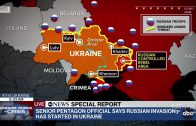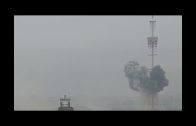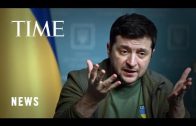Ukraine
Ukraine (Ukrainian: Україна, romanized: Ukraïna, pronounced [ʊkrɐˈjinɐ] (![]() listen)) is a country in Eastern Europe. It is the second-largest country by area in Europe after Russia, which it borders to the east and north-east.[a] Ukraine also shares borders with Belarus to the north; Poland, Slovakia, and Hungary to the west; Romania and Moldova[b] to the south; and has a coastline along the Sea of Azov and the Black Sea. It spans an area of 603,628 km2 (233,062 sq mi).[c] With a population of 43 million,[11][d] Ukraine is the eighth-most populous country in Europe. The nation’s capital and largest city is Kyiv.
listen)) is a country in Eastern Europe. It is the second-largest country by area in Europe after Russia, which it borders to the east and north-east.[a] Ukraine also shares borders with Belarus to the north; Poland, Slovakia, and Hungary to the west; Romania and Moldova[b] to the south; and has a coastline along the Sea of Azov and the Black Sea. It spans an area of 603,628 km2 (233,062 sq mi).[c] With a population of 43 million,[11][d] Ukraine is the eighth-most populous country in Europe. The nation’s capital and largest city is Kyiv.
The territory of modern Ukraine has been inhabited since 32,000 BC. During the Middle Ages, the area was a key centre of East Slavic culture, with the loose tribal federation Kievan Rus’ forming the basis of Ukrainian identity. Reaching its height in the mid-11th century, the Kievan Rus’ gradually declined until its collapse from the Mongol invasion in the 13th century. Over the next 600 years, the area was contested, divided, and ruled by a variety of powers, including the Polish–Lithuanian Commonwealth, Austria-Hungary, the Ottoman Empire, and Tsardom of Russia. The Cossack Hetmanate emerged and prospered during the 17th and 18th centuries but was ultimately partitioned between Poland and the Russian Empire. In the aftermath of the Russian Revolution, a Ukrainian national movement for self-determination emerged, forming the internationally recognized Ukrainian People’s Republic on 23 June 1917. The short-lived state was forcibly reconstituted by the Bolsheviks into the Ukrainian Soviet Socialist Republic, which became a founding member of the Soviet Union in 1922. Ukraine was the most populous and industrialised republic after the Russian Soviet Republic, until regaining its independence in 1991, following the dissolution of the Soviet Union.
Following its independence, Ukraine formed a unitary republic under a semi-presidential system, with separation of powers into legislative, executive, and judicial branches. It declared itself a neutral state,[12] forming a limited military partnership with Russia and other CIS countries while also establishing a partnership with NATO in 1994. In 2013, after President Viktor Yanukovych suspended the Ukraine–European Union Association Agreement in favor of closer economic ties with Russia, mass protests and demonstrations known as the Euromaidan erupted, escalating into the Revolution of Dignity that led to the overthrow of Yanukovych and the establishment of a new government. These events formed the background for Russia’s annexation of Crimea in March 2014 and the War in Donbas the following month, a protracted conflict with Russian-backed separatists that culminated in a Russian invasion in February 2022. Ukraine has continued seeking closer economic, political, and military ties with the West amid continuing war with Russia.[13]
Ukraine is a developing country with a lower-middle income economy, ranking 74th in the Human Development Index. Ukraine is among the poorest countries in Europe. It suffers from low life expectancy and widespread corruption.[14][15] However, due to its extensive fertile land, Ukraine is one of the largest grain exporters in the world.[16][17] It is a member of the United Nations, the Council of Europe, the OSCE, the GUAM organization, the Association Trio, and the Lublin Triangle.
